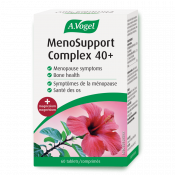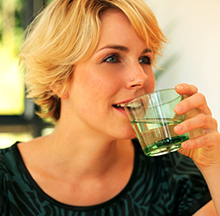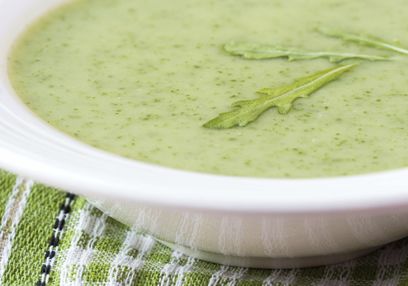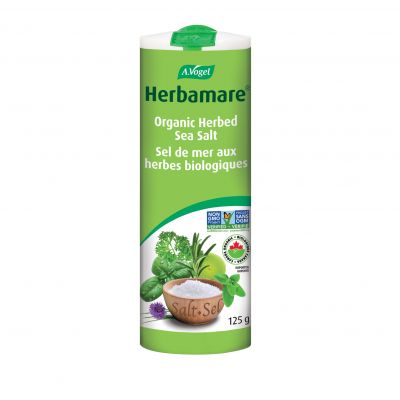The short answer to this question is 'no' they are not the same.
There are 3 separate stages of the menopause process:
- Perimenopause
- Menopause
- Post-menopause
Perimenopause, menopause, and postmenopause are phases of the menopausal process that take place as a woman's reproductive years begin to come to a close. Perimenopause is the first stage of this process that can last approximately 8-10 years before a woman enters menopause, where she completely stops having a menstrual period. The menopause process concludes with the postmenopausal stage.
What is Perimenopause?
Perimenopause, sometimes referred to as the menopause transition stage starts as early as 8-10 years before menopause. The ovaries' production of estrogen begins to wane beginning in your late 30s or 40s. This stage remains in place until your ovaries cease their release of eggs. As perimenopause enters into its last year, estrogen levels begin to decline gradually, and some women can start to notice slight changes in their bodies, including irregular periods.
During this time, periods can be light or heavy for a longer or shorter duration of time. Some women skip their periods and may even go as long as 60 days without menstruating (1). The reason for these fluctuations in bleeding patterns is due to the lining of the uterus. For heavier bleeds, it is often thicker before the shedding process than in those women with lighter periods. Changes in progesterone levels may contribute to this result as well.
Women may make the mistake of thinking they are actively in menopause and can no longer conceive a child. However, this thought process is incorrect. It is still possible to conceive a child during perimenopause.
The perimenopausal stage concludes only after a woman has gone for a minimum of 12 months without having her period.
How Does Menopause Differ from Perimenopause?
Menopause is the stage that takes place when a woman no longer experiences a period. She typically has to go without a period for one year before she qualifies for this stage. Menopause generally occurs as women enter their late 40's to early '50s with the average menopausal age being 51 years old. In cases where a woman has had her ovaries surgically removed, menopause can present itself at an earlier time.
Hormonal Changes during Perimenopause
During perimenopause, estrogen and progesterone levels can fluctuate, generating a series of responses within the body, mainly driven by hormonal changes that occur as a result of the ovaries no longer producing the same output or level of hormones as they did in a woman's youth.
Our ovaries produce estrogen, progesterone, and testosterone. Estrogen and progesterone are responsible for our menstrual cycle and menstruation. Estrogen also affects other aspects of our health such as our hearts, how we use calcium and even the cholesterol levels present in our blood. As a woman moves closer into menopause she can expect for these hormones to decline drastically and for symptoms to emerge more intensely.
Symptoms of Menopause
As a woman transitions through the various stages of her menopause, it is highly possible that she will at one point or another experience a myriad of symptoms. Listed below are some of the symptoms a woman may experience during perimenopause and menopause all due to declining estrogen levels (1,3):
- Insomnia
- Hot flashes
- Night Sweats
- Mood swings, depression, and irritability
- Forgetfulness
- Changes in libido
- Skin changes
- Bone loss
- Muscular pains
- Cardiovascular issues
- Irregular periods
- Vaginal dryness or discomfort during sex
- Thinning hair or the growth of facial hair
Management and Treatment of Menopause
It is preferable to manage perimenopause and menopause via a natural approach. Not all women experience difficulty with hormonal fluctuations and some may not require treatment for their symptoms.
Some of the most common approaches to managing menopause include:
- Hormone replacement therapy (HRT). But this approach often comes with undesirable side effects
- Vaginal lubricant
- Regular exercise
- Boosting calcium and vitamin D intake
- Taking supportive supplements to help a woman through this challenging period. A. Vogel's Menosupport complex is excellent for balancing hormones and Menoforce is very effective in helping to reduce daytime flushes and night sweats.
Other actions that can be taken include adjusting ones diet to accommodate these changes within the body. Natural remedies may include soy isoflavones and sage that are of great help for reducing the symptoms of menopause.
It's always advisable to avoid those things that may exacerbate symptoms such as spicy foods, hot drinks, and hot temperatures (1).
What defines the post menopausal period?
These are the years after menopause. During this stage, menopausal symptoms such as hot flashes, may ease for many women. As a result of lowered estrogen levels, women in post menopause are at an increased risk for a number of health conditions including cardiovascular disease and osteoporosis.
Adopting a plant-based lifestyle for navigating through hormonal fluctuations:
Adopting a plant-based diet is an alternative for those who are in search of a more natural approach to navigating these phases of one's life.
Plant foods and soy contain plant-based estrogen compounds known as phytoestrogens. Phytoestrogens resemble estrogen in the body and have the ability to regulate estrogen in the body. The three most common phytoestrogens are isoflavones, lignans, and coumestans. Don't worry about committing these three words to memory. In a nutshell, there are dozens of foods that contain these compounds and natural progesterone that may serve as a safer, more natural form of hormone replacement therapy (3).
Vitex for hormone challenges
Vitex agnus-castus, in the last decade, has gained a fair amount of attention as a herbal remedy that can help to alleviate menopausal symptoms (4). You may be asking if it's a plant that's been dedicated solely to PMS and you may be wondering if its effective for perimenopause as well? Vitex, also known or chasteberry, has been proven to be quite useful for managing hormonal challenges associated with perimenopause and menstrual cycles.
Taking 160-240 milligrams per day can make a difference in the severity or intensity of symptoms. According to a study published by Gynecological Endocrinology, this herb is safe and proves to be highly useful in combating hot flashes, improving mood swings, and can even help to solve issues of insomnia (5).
In Closing
Menopause is the most talked about of the three stages of a woman's hormone stages. Menopausal women have multiple options at their disposal that will enable them to manage their hormonal ebbs and flows. It's always best to choose a natural approach without the side effects. Women who have tried A.Vogel's menopausal products have had fantastic results and you can read their rave reviews here. If a woman is not sure if she is in one of these stages of menopause, she should contact her primary health care provider. Hormone testing can be done to measure hormone levels and evaluate ones "true" status. Verification is always best!
Sources
1. WebMD. Signs You're in Perimenopause.
2. The Journal of Clinical Endocrinology & Metabolism, Volume 51, Issue 6, 1 December 1980, Pages 1359–1364, https://doi.org/10.1210/jcem-51-6-1359
3. WebMD. Menopause Basics.
4. The Firshein Center for Integrative Medicine. Natural alternatives to hormone replacement therapy.
5. Vitex agnus-castus (Chaste-Tree/Berry) in the treatment of menopause-related complaints. J Altern Complement Med. 2009 Aug;15(8):853-62. doi: 10.1089/acm.2008.0447.
6. Phyto-Female Complex for the relief of hot flushes, night sweats and quality of sleep: randomized, controlled, double-blind pilot study. Gynecology Endocrinology. 2007 Feb; 23(2): 117-22







